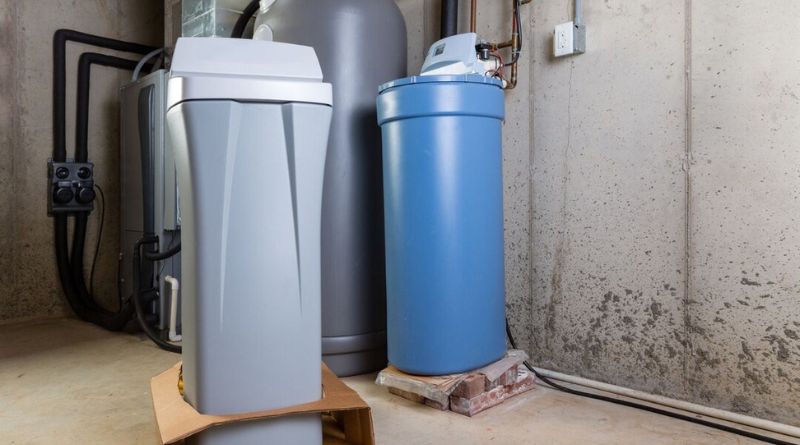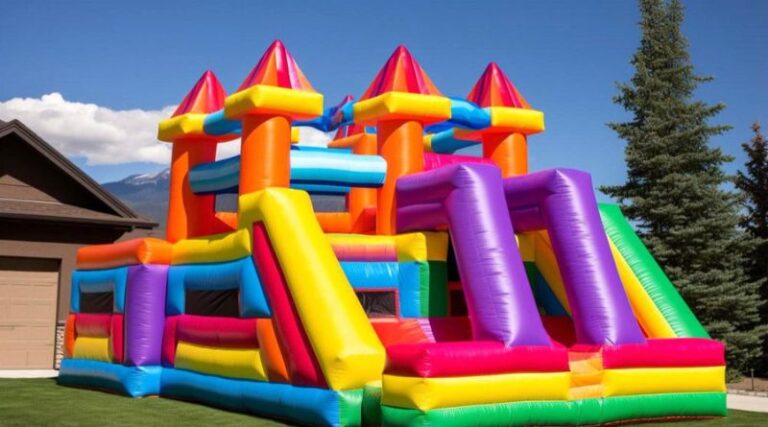
Water is one of the most essential resources for life, yet not all water sources are safe for consumption. Whether you’re dealing with hard water, chlorine, heavy metals, or other impurities, a whole house water filter can help ensure that every drop of water in your home is clean, safe, and healthy. Whole house water filtration systems provide comprehensive coverage by filtering water at the point of entry, meaning all the water in your house – from your drinking water to your shower and laundry – is purified.
This article will guide you through everything you need to know about whole house water filters, including how they work, the different types available, and the best options on the market. We’ll also answer some frequently asked questions to help you make an informed decision when choosing a water filtration system for your home.
What is a Whole House Water Filter?
A whole house water filter, also known as a point-of-entry filter, is a filtration system that is installed at the main water line where water enters your home. Unlike individual water filters for drinking or showering, a whole house system treats all of the water used in your home, including the water for your kitchen, bathrooms, and laundry. This ensures that you and your family have access to purified water from every tap and faucet.
Whole house water filters are designed to remove contaminants such as chlorine, sediment, pesticides, bacteria, and even heavy metals like lead and arsenic. These filters not only improve the quality of drinking water but can also protect your plumbing, appliances, and skin from harmful chemicals and minerals.
How Do Whole House Water Filters Work?
Whole house water filters typically consist of multiple stages of filtration that target different types of contaminants. The process generally includes:
1. Sediment Filtration
The first stage usually involves a sediment filter that captures large particles like dirt, sand, rust, and other debris. This is an important initial step to prevent these larger particles from damaging the more delicate filtration components that follow.
2. Carbon Filtration
The next stage often involves a carbon filter, which is effective in removing chlorine, volatile organic compounds (VOCs), and other chemicals that affect the taste and odor of water. Activated carbon can also reduce harmful chemicals like pesticides and industrial solvents.
3. Reverse Osmosis (RO) or Ion Exchange (Optional)
Some advanced whole house systems use reverse osmosis (RO) or ion exchange to further purify the water. RO uses a semi-permeable membrane to remove a wide range of contaminants, including heavy metals, salts, and microorganisms. Ion exchange systems can help soften water by replacing hard minerals like calcium and magnesium with sodium or potassium.
4. UV Purification (Optional)
For homeowners concerned about bacteria, viruses, and other pathogens, a UV (ultraviolet) light stage can be included. UV light can kill microorganisms without chemicals, providing an added layer of protection for your water supply.
5. Post-Filter
Some systems include a post-filter to remove any remaining contaminants and ensure that your water is as clean as possible when it reaches your taps.
Benefits of Whole House Water Filters
Investing in a whole house water filter provides a range of benefits that can improve your overall health and quality of life:
- Improved Water Quality: By filtering out harmful chemicals, chlorine, heavy metals, and other contaminants, you’re ensuring that the water your family drinks, bathes in, and uses for cooking is cleaner and safer.
- Better Tasting Water: Chlorine and other chemicals can leave water tasting and smelling unpleasant. A good whole house filter can help remove these chemicals, leaving water that is fresher and more enjoyable to drink.
- Protection for Plumbing and Appliances: Over time, minerals in unfiltered water can build up inside pipes and appliances, leading to clogs, rust, and reduced efficiency. A whole house filter can help prevent mineral buildup and extend the lifespan of your plumbing and appliances.
- Skin and Hair Health: Chlorine and other chemicals can irritate the skin and hair, leading to dryness and discomfort. A whole house water filter can help protect your skin and hair, particularly when showering or bathing.
- Cost-Effective: Instead of purchasing bottled water or individual filters for each faucet, a whole house water filter can offer a one-time solution to purify all of the water in your home, saving money in the long run.
Best Whole House Water Filters
There are a variety of whole house water filters available on the market, each catering to different needs and preferences. Below are some of the best whole house water filters, based on performance, reliability, and customer reviews.
1. Aquasana Rhino Whole House Water Filter System
The Aquasana Rhino Whole House Water Filter System is a popular choice for homeowners seeking a comprehensive filtration system. It offers a multi-stage filtration process that removes chlorine, heavy metals, pesticides, and other harmful contaminants while also reducing hard water.
- Capacity: Can filter up to 600,000 gallons of water.
- Filtration Stages: Includes a pre-filter for sediment, a coconut shell carbon filter, and a post-filter.
- Additional Features: It also features an optional UV filter for eliminating bacteria and viruses.
- Pros: Great for families with high water usage, effective at improving water taste and quality, long-lasting filters.
- Cons: Installation can be challenging for some users.
2. iSpring WGB32B 3-Stage Whole House Water Filtration System
The iSpring WGB32B is a great budget-friendly option for homeowners who need reliable filtration without breaking the bank. It offers a 3-stage filtration process that removes sediment, chlorine, and other impurities.
- Capacity: Can filter up to 100,000 gallons of water.
- Filtration Stages: Includes a 5-micron sediment filter, a carbon block filter, and a 20-micron carbon filter.
- Additional Features: Suitable for homes with 3-4 bathrooms and can be installed easily by homeowners.
- Pros: Affordable, easy to install, good for city water.
- Cons: Not suitable for well water with high levels of contaminants.
3. Home Master HMF3SDGFEC Whole House Water Filtration System
The Home Master HMF3SDGFEC is a high-end system designed to tackle various types of water contaminants, including sediment, chlorine, and heavy metals. It is especially effective for homes with well water or hard water.
- Capacity: Can filter up to 95,000 gallons of water.
- Filtration Stages: Includes a multi-stage filtration process with sediment filtration, carbon block, and catalytic filtration for iron and other metals.
- Additional Features: Great for homes with well water, softens water, and improves taste.
- Pros: High-performance filtration, good for hard water, easy to maintain.
- Cons: Higher price point.
4. Culligan WH-HD200-C Whole House Filtration System
Culligan is a trusted name in water filtration, and their WH-HD200-C model is an excellent option for homeowners who need to improve the taste and quality of their water. This filter is designed for city water and works to remove chlorine, sediment, and other common contaminants.
- Capacity: Can filter up to 10 gallons per minute.
- Filtration Stages: Includes a high-flow sediment filter and activated carbon filter.
- Additional Features: The filter is designed to be easy to install and replace.
- Pros: Reliable brand, simple installation, and maintenance.
- Cons: Doesn’t offer advanced filtration for heavy metals.
5. APEX MR-1050 Whole House Water Filter System
The APEX MR-1050 is an excellent whole house filter designed for those who want to filter out chlorine, chloramines, VOCs, and other chemicals. It is effective for both municipal and well water.
- Capacity: Filters up to 1,000,000 gallons.
- Filtration Stages: Includes an activated carbon filter and a post-filter to reduce chlorine and volatile chemicals.
- Additional Features: Compact design, made with high-quality materials.
- Pros: Long-lasting filters, easy to maintain, good for urban water supplies.
- Cons: May not be as effective with hard water.
Frequently Asked Questions (FAQs)
Q1: How long do whole house water filters last? The lifespan of a whole house water filter depends on the type and brand, as well as the quality of the water in your area. Typically, filters need to be replaced every 6 months to 1 year, but some systems can last up to 5 years. Be sure to follow the manufacturer’s recommendations for maintenance.
Q2: Can a whole house filter remove hard water? Some whole house water filters are equipped with water softeners to address hard water issues by removing calcium and magnesium. If you’re dealing with hard water, look for a system that includes a softening feature or consider installing a separate water softener.
Q3: Do I need to hire a professional to install a whole house filter? While some systems can be installed by DIY homeowners, more complex systems may require professional installation. It’s important to check the installation requirements of your chosen system and consult with a plumber if needed.
Q4: How do I know if I need a whole house filter? If you notice issues with your water such as a strange taste or odor, sediment buildup, or skin irritation from chlorine, a whole house filter can significantly improve your water quality. Additionally, if you have well water or live in an area with contaminated municipal water, a whole house system is highly recommended.
Q5: What maintenance is required for a whole house filter? Maintenance depends on the type of filter you choose. Most systems require periodic filter changes, while others may need cleaning or sanitization. Always refer to the manufacturer’s guidelines to ensure your system is functioning optimally.
Conclusion
Investing in a whole house water filter is an excellent way to ensure that every drop of water in your home is clean, safe, and healthy. Whether you’re concerned about chlorine, sediment, hard water, or other contaminants, there are a variety of systems available to suit your needs and budget. By understanding how these systems work and evaluating your water quality, you can choose the best whole house water filter for your home, providing long-term benefits for your family and your plumbing system.






